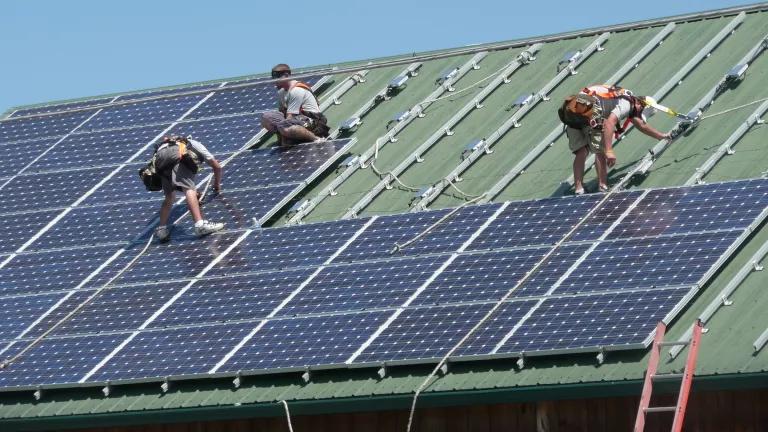Put this in the category of cutting off your nose to spite your face: Yesterday, Ohio EPA proposed allowing ethanol plants to pollute more not because it's good for the environment but explicitly because it's good for business. With this brave leap backwards, Ohio takes the lead in the race to the bottom. And the fact that the ethanol industry let Governor Strickland and OEPA do this in its name suggests a perverse desire to shed their green image and invite public backlash. Or maybe it just suggests good old fashion greed.
The story is here (subscription required), but the back story starts early this year when at Senator Thune's urging US EPA proposed to allow ethanol plant to pollute twice as much before coming under federal air regulations. They did this by ruling that ethanol plants, which by law have to mix a small amount of gasoline with their ethanol so that it's toxic to humans, are actually food processing plants not chemical refineries. Needless to say, NRDC submitted comments, and, after EPA finalized their rule, we asked them to reconsider, and now we're suing them.
Time and the court will tell if this totally unsupported, totally bone headed, and patently illegal rule stands or falls, but one thing is clear is that the whole thing is a self-inflicted black eye for the ethanol industry at a time when ethanol's green-cred is being questioned every day.
Don't worry some of my friends in the industry said. Just because the fed's raise the pollution levels doesn't mean the states will follow. States can't set looser standards than the feds, but they can, and many do, set stricter standards forcing polluters into federal permitting at lower levels. And this is where Ohio steps in to grab the lead anchor. Ohio is weakening its standards right to the federal levels.
According to the article, Ohio is behind in the ethanol race with no operating plants and a wimpy seven under construction. If they all come on line, they'll have the capacity to produce 350 million gallons per year.
"This is being proposed in order to be more competitive in the ethanol marketplace," spokeswoman Linda Fee Oros is quoted saying in the article. Now it's not clear if she's a governor's spokeswoman or an OEAP spokeswoman, but aren't air regulations supposed to protect the public health not drive economic development?
I believe that to stop and reverse global warming, we need to make biofuels work as part of a package that includes more efficient vehicles, smart growth, and plug-in hybrids. These weaker air regulations are first and foremost bad for public health, but they're also bad for the industry, and in the end that makes it that much hard to solve global warming.




